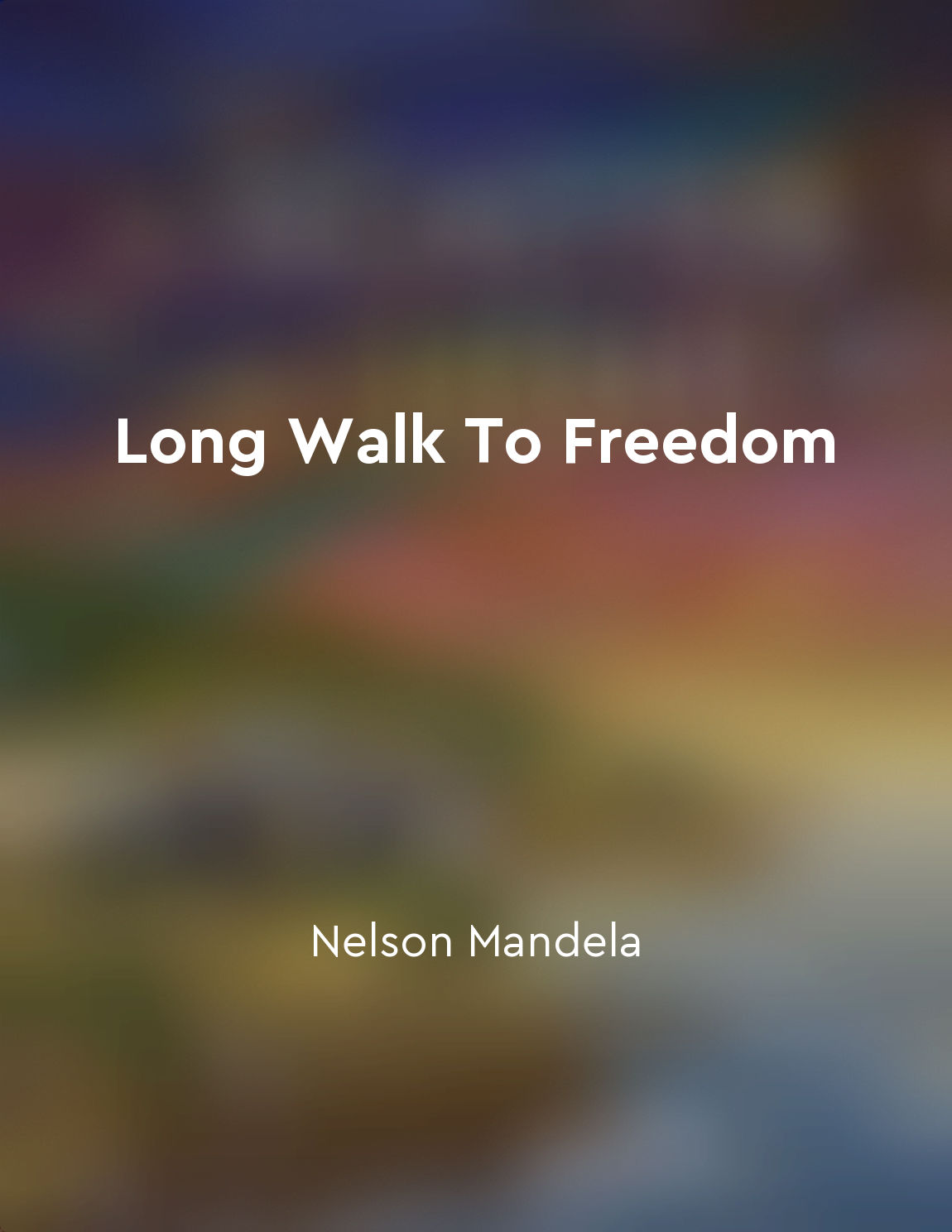Audio available in app
Belief in the power of forgiveness from "summary" of Long Walk To Freedom by Nelson Mandela
Nelson Mandela's journey to forgiveness was a long and difficult one. It was a journey that required him to look deep within himself and confront his own anger and bitterness. Mandela understood that forgiveness was not about excusing the actions of those who had wronged him, but about freeing himself from the chains of hatred and resentment. Mandela believed that forgiveness had the power to heal wounds that had been festering for years. He saw forgiveness as a way to break the cycle of violence and revenge that had plagued his country for generations. Mandela knew that forgiveness was not a sign of weakness, but of strength. It took great courage to forgive those who had caused him so much pain and suffering. Mandela's belief in the power of forgiveness was rooted in his deep sense of humanity. He saw forgiveness as a way to connect with others on a fundamental level, to acknowledge our shared humanity and our shared capacity for both good and evil. Mandela understood that forgiveness was a deeply personal journey, one that required introspection and self-reflection. For Mandela, forgiveness was not just a one-time act, but a lifelong commitment. He knew that forgiveness was a process, one that required patience and perseverance. Mandela understood that forgiveness was not always easy, but that it was always worth it. He saw forgiveness as a way to build a better future for himself and for his country.- But he never wavered in his commitment to forgiveness. Mandela's unwavering belief in the power of forgiveness ultimately helped him to transform his country and himself. Through forgiveness, Mandela was able to heal the wounds of the past and pave the way for a brighter future.


